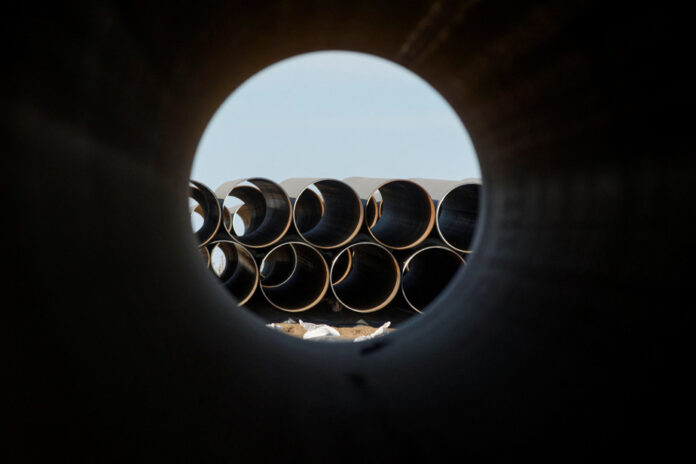(LONDON) European natural gas soared to near 45 euros on Tuesday, pushed by growing concerns that a strike in Australia could disrupt the country’s liquefied natural gas supply, before last-minute negotiations to try to avoid it. .
Around 11 a.m., the Dutch TTF futures contract, considered the European benchmark, climbed 5% to 42.88 euros per megawatt hour (MWh) shortly after rising to 44.80 euros per MWh, its highest since mid-June.
“LNG (liquefied natural gas) workers at a key facility in Australia could go on strike from early September if a pay deal is not reached,” said Deutsche Bank analyst Jim Reid.
Union members at Woodside’s North West Shelf project voted unanimously over the weekend to go on strike if their demands are not met at a final bargaining meeting scheduled for Wednesday, the Sydney Morning newspaper reports. Herald.
“It’s time for Woodside’s workforce to receive its fair share of the profits it generates for shareholders,” the Offshore Alliance union said in a post on its Facebook page on Tuesday, saying its members were “ready Act “.
The Australian gas facilities affected by the potential strike alone supply more than 10% of the world’s LNG supply each month.
In addition to platforms from the Australian giant Woodside, some from Chevron could also be affected. “Collectively, these facilities represent an impressive 53% of Australia’s LNG export capacity,” said Ole R. Hvalbye, analyst at Seb.
“Year-to-date, Australia is the second largest LNG exporter with 49 million tonnes,” he continues.
This sharp rise in natural gas prices in Europe is “irrational” and a “clear sign of market fragility,” said Meg O’Neill, chief executive of Woodside, according to the Financial Times.
Concerns over possible strikes have indeed rocked TTF prices for the past two weeks, as “even if Europe does not receive LNG from Australia, it will increase competition for shipments from” other countries. exporters,” says Reid.
Asian buyers in need of liquefied natural gas could therefore be pushed to outbid their European counterparts and turn to the United States to compensate for the lack of Australian supply, boosting demand.
“Europe is however still in a much better position than last year” when it comes to its stocks, he claims, with EU gas reserves being 90% full compared to “77% at the same time.” time in 2022″.
Oil, meanwhile, was down slightly on Tuesday on fears over Chinese demand, though tempered by OPEC’s production cuts.
A barrel of Brent from the North Sea, for delivery in October, lost 0.37% to 84.15 dollars. Its American equivalent, the barrel of West Texas Intermediate (WTI), for delivery in September, of which it is the last trading day, fell 0.22% to 80.54 dollars.
“Concerns about the Chinese economy and its effects on global demand continue to weigh on the market, but reduced production from Russia and Saudi Arabia manages to offset this for now,” Energi analysts say. Denmark.















